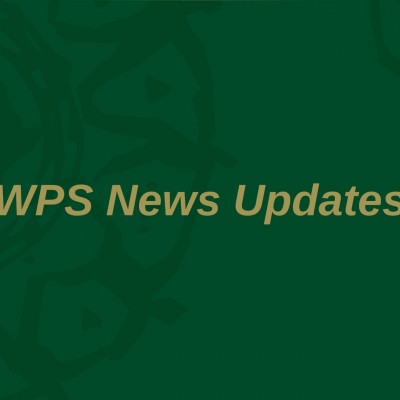From Where I Stand: As a Woman, Practicing Self-Isolation in a Home Setting is Next to Impossible
Source: UN Women / Gorret Kalekwa
Gorret Kalekwa, 39, is an enrolled midwife working at Adjumani General Hospital. Adjumani district registered Uganda’s second case of COVID-19 on 23rd March 2020. Gorret, who was one of the Case Management Team members and served in the Coronavirus Treatment Unit, narrates her experience and what it means when you have a young family.
Read the full story here.
Why So Few Women in EU Missions?
Source: EU Observer / Patricia Kruse and Tobias Pietz
The proportion of women in leadership positions is only a small aspect of the question of how to increase the influence and significance of women in the field of peace and security – but it is a very visible one and therefore an important symbol.
As of Wednesday (1 July), Germany assumed the presidency of the Council of the European Union. As chancellor of Germany, Angela Merkel will be chairing the council’s meetings. She is only the seventh woman to do so.
Looking at the Common Security and Defence Policy (CSDP) of the EU and its missions, it is striking that its focus has so far been quite limited when it comes to the visibility and promotion of women. This is the only explanation for the fact that in 2020 there is no woman leading any of the current eleven European civilian missions (let alone one of the six military operations). In general, only six of all the civilian missions so far have been led by a woman – but 64 by a man.
Read the full article here.
UAE Among Leading Global Contributors to UN Women
Source: The National UAE / Anna Zacharias
A decade after the foundation of UN Women, the UAE has remained a leading financial contributor of the organisation dedicated to gender equality. The UAE ranks first in the Arab world and tenth globally in resource contribution to the international body, which turned 10 on Thursday. On its milestone anniversary, the organisation called on all governments to factor women’s needs into national pandemic response and recovery plans.
Read the full article here.
South Sudan Women Demand Equity in Government
Source: Voice of America / Manyang David Mayar
Partners in South Sudan’s unity government violated a provision of the 2018 revitalized peace agreement that states that 35% of all government positions should be filled by women, women’s groups say. Amer Manyok Deng, chairperson of the South Sudan Women’s Bloc, a stakeholder at the peace talks, urged President Salva Kiir on Thursday to revoke his recent appointment of eight governors, of which only one is a woman. If he refuses, Deng told South Sudan in Focus, Kiir should find a solution that meets the required 35% quota for female representation at all levels of government.
“These spaces, we are not going to leave it like that,” Deng told VOA. “They have to call out the rest of the people who are seated in our space and the women must be there. In case it becomes difficult for the president to reverse the decree for the appointment of the governors, he has to appoint all deputy governors female.”
Read the full article here.
From where I stand: “Having More Women in Conflict Mediation is Positive for Everyone Involved.”
Source: UN Women / Martinho Carvalho Sarmento
Martinho Carvalho Sarmento, recently promoted to the position of Inspector General in Timor-Leste, knows the benefits of having women involved in conflict mediation and prevention. Previously Chief of the Department for Community Conflict Prevention (DNPCC), Inspector Sarmento has been working with UN Women to promote gender equality in the workplace and the community. He is planning to use his new expanded role and his knowledge of gender equality issues to increase women’s participation and leadership in many departments of the Ministry of Interior.
Read the full article here.
The Power of Community Advocacy and Healing for Women Survivors of Violence
Source: UN Women / Olinda Alves da Silva
Olinda Alves da Silva, 44 is part of a community of women who are pioneering a better way to provide care and support healing for women survivors of the past conflict in Timor-Leste (1975-1999), while working to prevent further violence against women.
Read the full article here.



